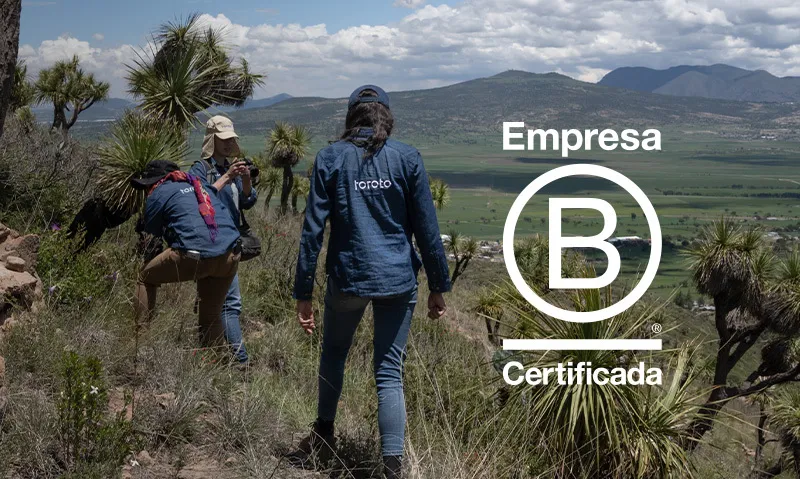Considerations on climate action: perspectives and reflections towards a fairer and more resilient territory



The climate crisis, in the deepest of their understanding, is also a social, environmental and economic crisis, where no sector of humanity is left out. It is a multidimensional and global crisis, so solutions must be adapted to its enormous magnitude. One of the answers to curb its negative externalities are voluntary projects, which seek to solve the problem based on intersectoral cooperation in the most deliberate way, and thus shorten the path of Business as Usual which has characterized some years of our history, and then we return to the single objective of safeguarding what really matters: our Earth.
Although these voluntary projects have different modalities, some of them focus specifically on nature's potential—and even more specific—on nature's carbon sequestration capacity. Through the proper management of forests, jungles, wetlands, soils, and others, we can sequester atmospheric carbon dioxide and mitigate its levels. We call this approach based on nature and territories, territorial climate action, because it not only involves natural resources, but also those who have historically cared for them.
Voluntary projects based on nature are a powerful tool, however, full of challenges and opportunities, because by involving different actors and territories with their own stories, achieving sustainability in all spheres, moving towards radical transparency, ensuring well-deserved justice and transmuting individualism into an urgent collective consciousness, it results in a transcendental task rather than a simple ideal. For this reason, we have reflected on three essential practices within territorial climate action that add to the construction of the above, based on the three fundamental pillars of sustainability: societies, nature and the economy.
1. To revalue the work of those who own and inhabit the territories
Across the planet's territories, there is an indispensable actor that makes the first link in the chain of steps for climate action, the most important link. In Toroto we call them Owners of the Earth, but we refer to all those people who have a social tenure of the territory, that is, who protect them from nature, and that is where everything begins; where the sequestration of atmospheric carbon occurs to a large extent. Why do we say Revaluate? A large part of the territory with social tenure is in the global south, a region where historically we find the (wrongly called) “developing countries” and where endless stories of vulnerability and alienation of societies with their natural resources exist. The owners of the land, whether they are ejidos, communities, indigenous reserves and others, protect a large part of the world's biodiversity, so if we want to build a more just, sustainable and resilient world, they - and their work - must always come first, from the conception and design of a project to its execution and maintenance.
2. Respect governance and demand transparency
Governance within territorial climate action is understood as the form of community, internal and autonomous regulation of those who own and inhabit the territory. Ensuring community management is a way of ensuring that respect and transparency are present at all times, in every decision and in every transaction, because all voices - both of the owners of the land and of those who support developing a voluntary project - are heard and taken into account with the sole objective of generating a common benefit, and not an individual one. The correct integration of governance into an approach to climate action also implies a key concept in voluntary carbon projects: permanence. That is, a long-term commitment to care and protection. The only way to ensure permanence in carbon sequestration is to form lasting alliances with the owners of the land; alliances based on respect, transparency and trust.
3. Moving towards a regenerative economy
The creation of a product or service generally responds to a linear supply chain, so in order to move to a regenerative one, it is necessary to talk about the way in which nature is governed, where the concept of scrapping, because this externality is constantly being fed back to some past or future process. In the territories where climate action is taking place, the regenerative conception of processes is key. From repeated commitments that allow the care, protection, monitoring and management of natural resources, to the reintegration of organic waste into cultivation, restoration and management processes. It is important to change our productive approaches in such a way that we replicate nature and the cycles that keep it resilient.
The last reflection, and the most necessary, is that all previous good practices go hand in hand and it is imperative to rethink them when not. Without land owners capable of living profitably conserving nature, we have nothing; without respect for other forms of governance and relationship with other people's resources, there is no cooperation that lasts; without giving back to nature more than we take away, resilience cannot exist.
Just as the spheres of sustainability intersect at one point, just as B Companies commit to managing the most responsible of our interactions with the environment and its people, and just as the climate needs the highest standards of quality and integrity within territorial climate action to reduce the adverse effects of climate change, the entire planet needs committed and responsible alliances at all levels. We all need to walk hand in hand together. At Toroto, we are proud to be part of the community of B Companies committed to change, because there is nothing that moves us more than acting today, for tomorrow.
Explore reflections, research and field learning from our work in ecosystem restoration.